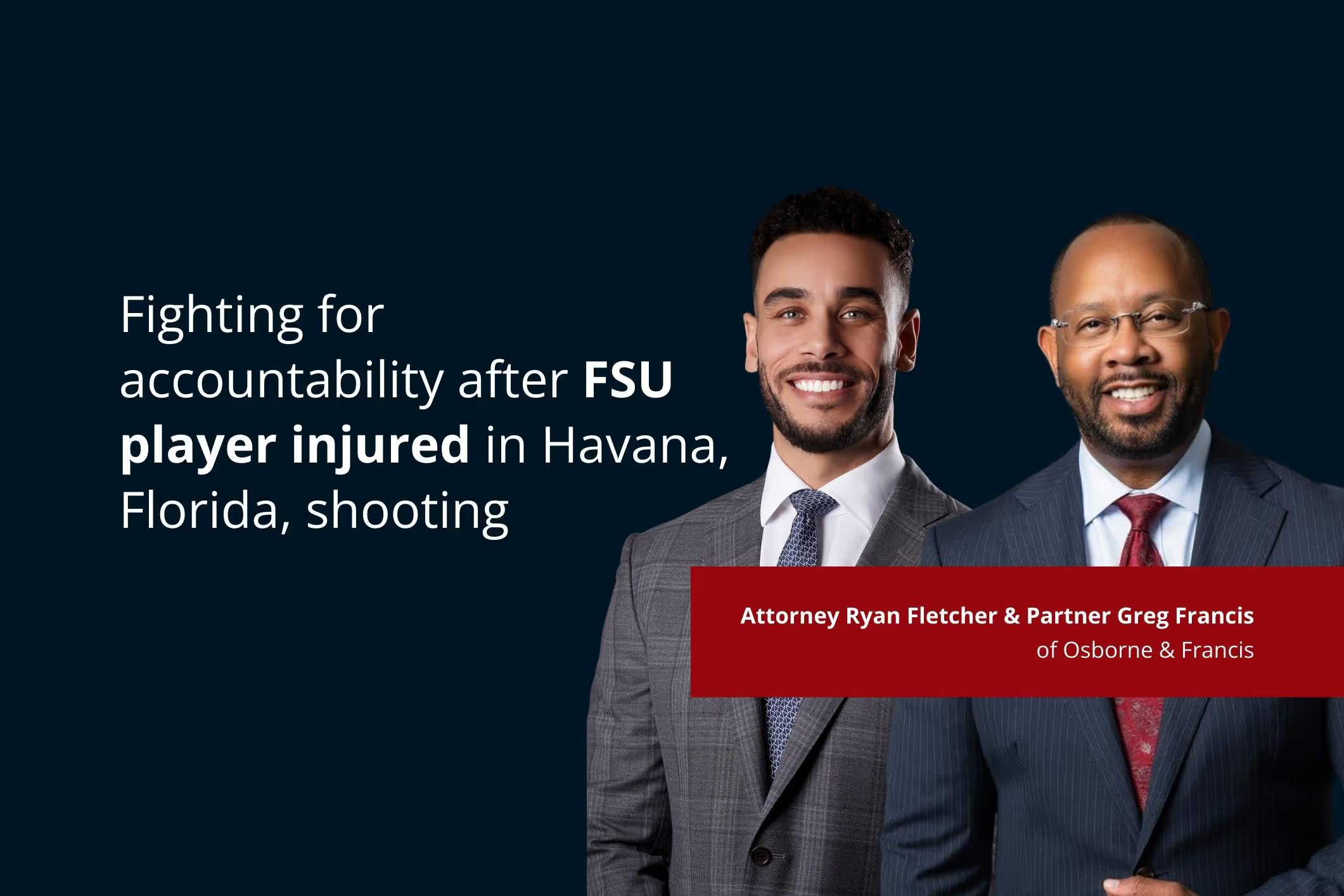Understanding the meaning and various types of negligence in legal matters is important, especially in personal injury claims. Comparative negligence vs. contributory negligence are two concepts that arise when determining who is liable.
Both involve assigning fault, however, contributory negligence can completely prevent you from collecting any damages if you are found partly responsible. Meanwhile, comparative damage considers the degree of fault of each party, allowing you to qualify for a portion of compensation even if you are liable.
States may differ in their adherence to either comparative or contributory negligence standards. For example, in 2023, Florida shifted to a modified comparative negligence standard, meaning the plaintiff could be barred from compensation entirely.
With decades of experience in personal injury claims, Osborne, Francis & Pettis knows the difference between contributory negligence and comparative negligence, enabling us to make informed decisions and boost your chances of recovering compensation. Contact us online or call (561) 293-2600 with any questions about how negligence impacts your case.
Difference Between Contributory Negligence and Comparative Negligence
Identifying fault in a personal injury claim can easily become confusing and intricate, particularly when the injured party themselves may bear some responsibility.
For instance, in a slip-and-fall case, if the plaintiff failed to heed warning signs or were distracted, their actions could be construed as contributing to the accident. Similarly, if the plaintiff was speeding or did not use signals, their actions could be labeled partially negligent for a car accident.
Comparative and contributory negligence are legal doctrines used to allocate fault in personal injury cases.
Contributory Negligence Meaning
Contributory vs. comparative negligence bars any recovery for the plaintiff if they are found to have contributed in any way to their injury, regardless of the defendant’s level of fault.
In states that allow contributory negligence, the plaintiff must be 100% free of any liability to get compensation from the defendant. This can be a harsh rule for plaintiffs, as even minimal negligence on their part can result in a complete loss of their right to compensation.
However, there are exceptions to contributory negligence, such as:
- Product liability cases.
- Cases involving children five years of age or younger.
- If the defendant had the “last chance” to prevent the accident from happening.
An Example of Contributory Negligence
To highlight the strict nature of contributory negligence, consider a scenario where a pedestrian is crossing the street outside a designated crosswalk and is struck by a vehicle. In a state with contributory negligence, if the court determines the pedestrian’s actions even slightly contributed to the accident, in this case, by jaywalking, they may be unable to recover any compensation for their injuries, even if the driver was primarily at fault.
Currently, four states and the District of Columbia follow contributory negligence:
- Alabama
- Maryland
- Virginia
- North Carolina
- D.C.
In these places, even if you are found only 1% liable, you may be stripped of your right to recover damages. While this all-or-nothing mentality might seem extreme, the defendant cannot simply claim contributory negligence for no reason. They must provide sufficient evidence that the injured party was aware of the potential risks associated with their actions.
Sorting out the logistics of negligence in your personal injury claim can prove tricky. You may feel overwhelmed when trying to figure out contributory vs. comparative negligence in your case.
That’s why the knowledgeable lawyers at Osborne, Francis & Pettis are here to answer your questions and lead you through the legal process. Contact us online or call (561) 293-2600 to have our team review your claim.
What Is Comparative Negligence?
Some might argue that comparative negligence is a fairer approach to determining liability in accidents that involve multiple at-fault parties.
Unlike contributory negligence, which completely blocks recovery if the plaintiff is found even slightly responsible, comparative negligence permits plaintiffs to collect compensation even if they contributed to the accident.
However, states have different approaches to comparative negligence, opening the door for different rules on the distribution of compensation.
Pure Comparative Negligence
Pure comparative negligence means that plaintiffs can still recover damages even if they are mostly at fault for the accident. That said, the amount of compensation is reduced in proportion to their degree of fault.
For instance, let’s say you were 70% responsible for a car crash. You could still file a lawsuit and potentially recover 30% of the total damages awarded.
Modified Comparative Negligence
In contrast, states that implement modified comparative negligence typically impose a threshold at which the plaintiff can be at fault, beyond which plaintiffs cannot recover damages. Most states generally cap the limit at equal to or at 50%.
If the plaintiff’s liability exceeds this threshold, they cannot recover any compensation. However, if their portion of responsibility falls below the cap, they can seek damages, albeit reduced based on their percentage of fault.
Below are some examples of a breakdown of how comparative damage works:
- In cases where the plaintiff is 0% at fault, they are eligible to collect 100% of the compensation.
- If the plaintiff is considered 40% responsible, they retain the right to pursue 60% of the damages.
- But if the plaintiff’s fault is found to be 51%, they will not be able to recover any compensation.
Several states, including Colorado, Delaware, and Texas, follow a modified comparative negligence model. Under Florida’s new tort reform bill, House Bill 837, the state updated its negligence standard from pure comparative negligence to modified comparative negligence.
An Attorney Can Help You Understand Contributory vs. Comparative Negligence in Your Claim
Enlisting an experienced attorney can prove very beneficial in navigating contributory negligence vs. comparative negligence. A lawyer can accurately assess your percentage of fault while arguing on your behalf to ensure you don’t miss out on rightful compensation.
Osborne, Francis & Pettis Will Fight for Your Right to Compensation
The attorneys at Osborne, Francis & Pettis have decades of combined experience supporting individuals in personal injury claims. We have obtained billions for our clients, including a $2.5 million car accident claim. If you were injured but are unsure of the extent of your liability and how it will affect your case, reach out to us online or call (561) 293-2600.

.avif)












.avif)


.svg)




